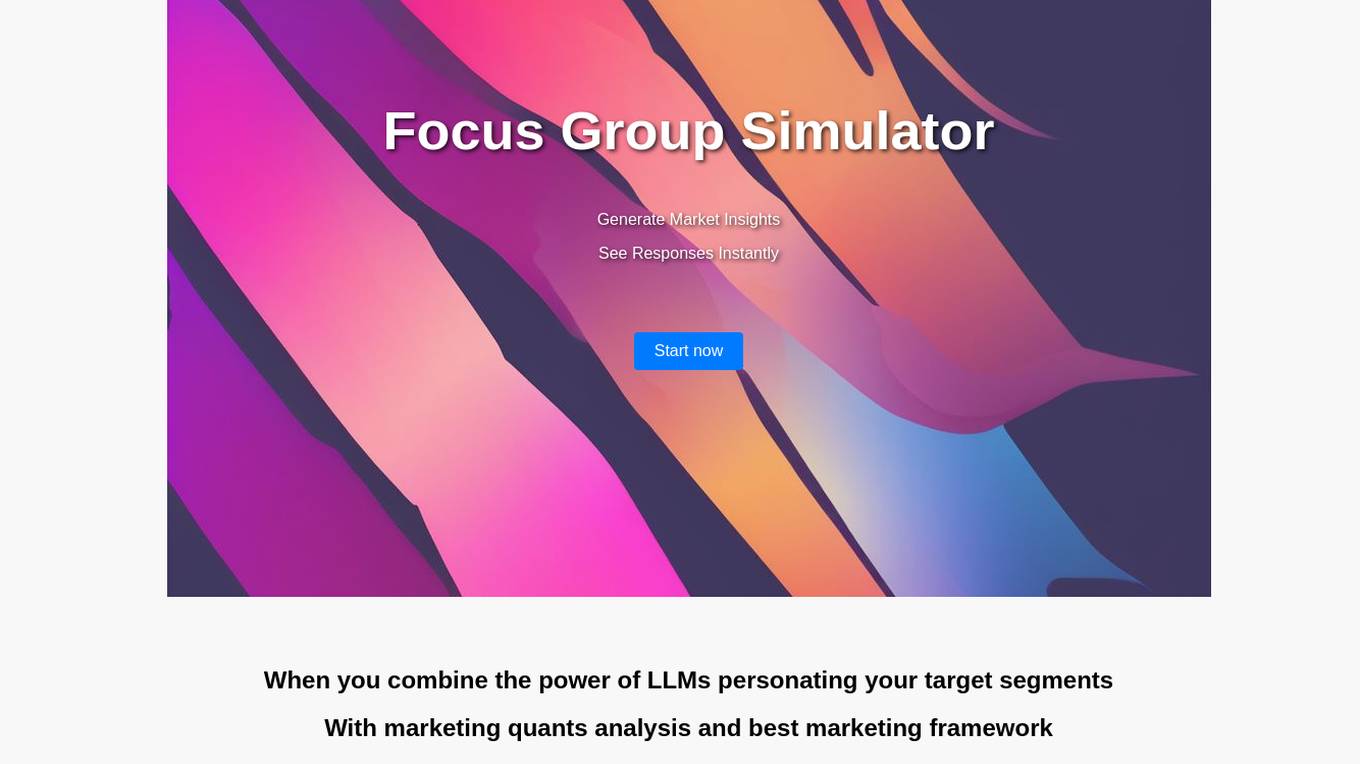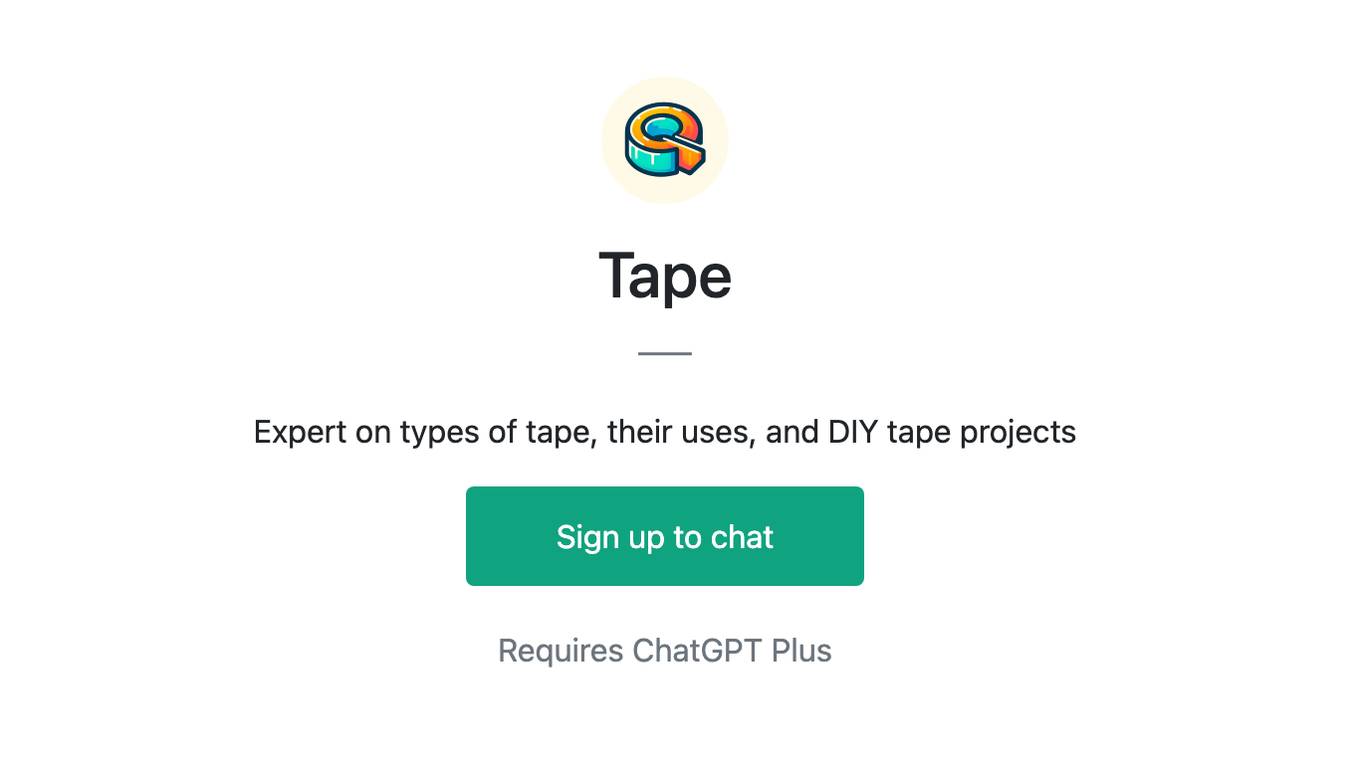Best AI tools for< Hanging Pictures >
1 - AI tool Sites

Focus Group Simulator
Focus Group Simulator is an AI tool designed to generate market insights instantly by simulating focus groups. By combining the power of LLMs to personate target segments with marketing quants analysis and best marketing frameworks, the tool provides valuable insights for businesses, especially startups. It helps identify low-hanging-fruit segments and offers guidance on product development, pricing, and promotion strategies to create more value and avoid waste. Users can customize simulations and engage with the team for further enhancements.
site
: 0
0 - Open Source AI Tools
No tools available
